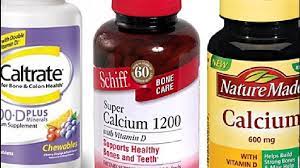Does Calcium Cause Constipation?

What is constipation?
Constipation is a condition in which a person has uncomfortable or infrequent bowel movements. Generally, a person is considered to be constipated when bowel movements result in the passage of small amounts of hard, dry stool, usually fewer than three times a week. However, normal stool elimination may consist of having a bowel movement three times a day or three times a week; it depends on the person.
About 4 million people in the United States have frequent constipation. Constipation is the most common gastrointestinal complaint, resulting in 2.5 million doctor visits annually.
Hard, dry stools are the result of the colon absorbing too much water. Normally, as food moves through the colon (also known as the large intestine) the colon absorbs water while forming stool (waste products). Muscle contractions then push the stool toward the rectum, and, by the time the stool reaches the rectum, most of the water has been absorbed, making the stool solid.
When the colon’s muscle contractions are slow or sluggish, the stool moves through the colon too slowly, resulting in too much water being absorbed.

What are calcium supplements?
Calcium is important for bone health throughout your life. Although diet is the best way to get calcium, calcium supplements may be an option if your diet falls short.
Before you consider calcium supplements, be sure you understand how much calcium you need, the pros and cons of calcium supplements, and which type of supplement to choose.
Your body needs calcium to build and maintain strong bones. Your heart, muscles, and nerves also need calcium to function properly.
Some studies suggest that calcium, along with vitamin D, may have benefits beyond bone health: perhaps protecting against cancer, diabetes, and high blood pressure. But evidence about such health benefits is not definitive. Women ages 19 to 50 should consume 1,000 milligrams of calcium a day, and the target for women over 50 is 1,200 milligrams per day.
According to a March 2013 study in JAMA Internal Medicine, calcium is the second most widely taken dietary supplement. The first is mineral-based multivitamins, which tend to contain calcium, particularly when they are designed as products for older adults. Other multivitamins, like prenatal vitamins, also contain calcium.
Does calcium cause constipation?
The two main forms of calcium supplements are carbonate and citrate. Calcium carbonate is the cheapest and therefore often a good first choice. Other forms of calcium in supplements include gluconate and lactate.
In general, calcium carbonate is the most constipating supplement, but it contains the highest amount of calcium and is the least expensive. Calcium phosphate does not cause gas or constipation, but it is more expensive than calcium carbonate.
Regardless of which calcium supplement you are taking, there may still be the possibility of constipation. You can reduce the risk of constipation by drinking plenty of water, increasing your dietary fiber intake, and being physically active.
Being active and exercising on a regular basis protects bone health. Weight-bearing exercises such as walking, jogging, and weight training are especially helpful in preventing bone loss.
Simply moving more throughout the day supports bone health, too. Research indicates that women who sit for more than nine hours a day are 50 percent more likely to have a hip fracture than those who are less sedentary. Finding ways to work more walking or standing into your day can add up. For example, park farther away from buildings, take the stairs instead of the elevator, and pace while on phone calls.
For most women, skipping calcium supplements in favor of boosting dietary calcium and focusing on weight-bearing exercise is the best way to keep bones strong. But if you’re still concerned about getting enough calcium, talk to your doctor first before taking supplements to see if you really need them.





